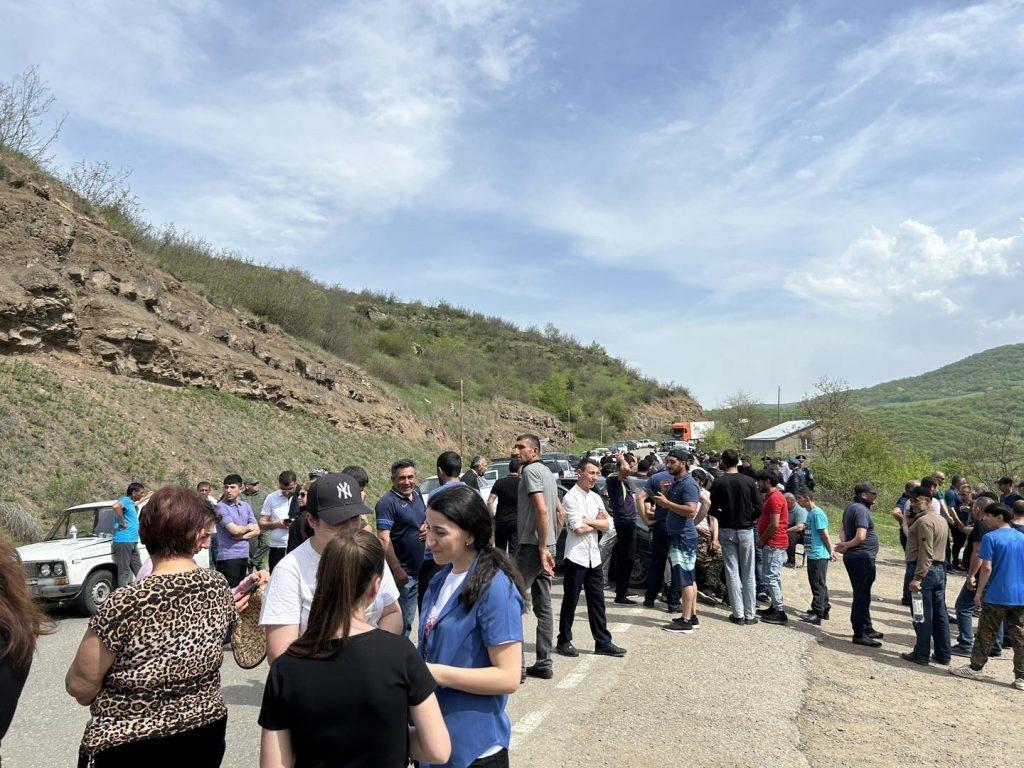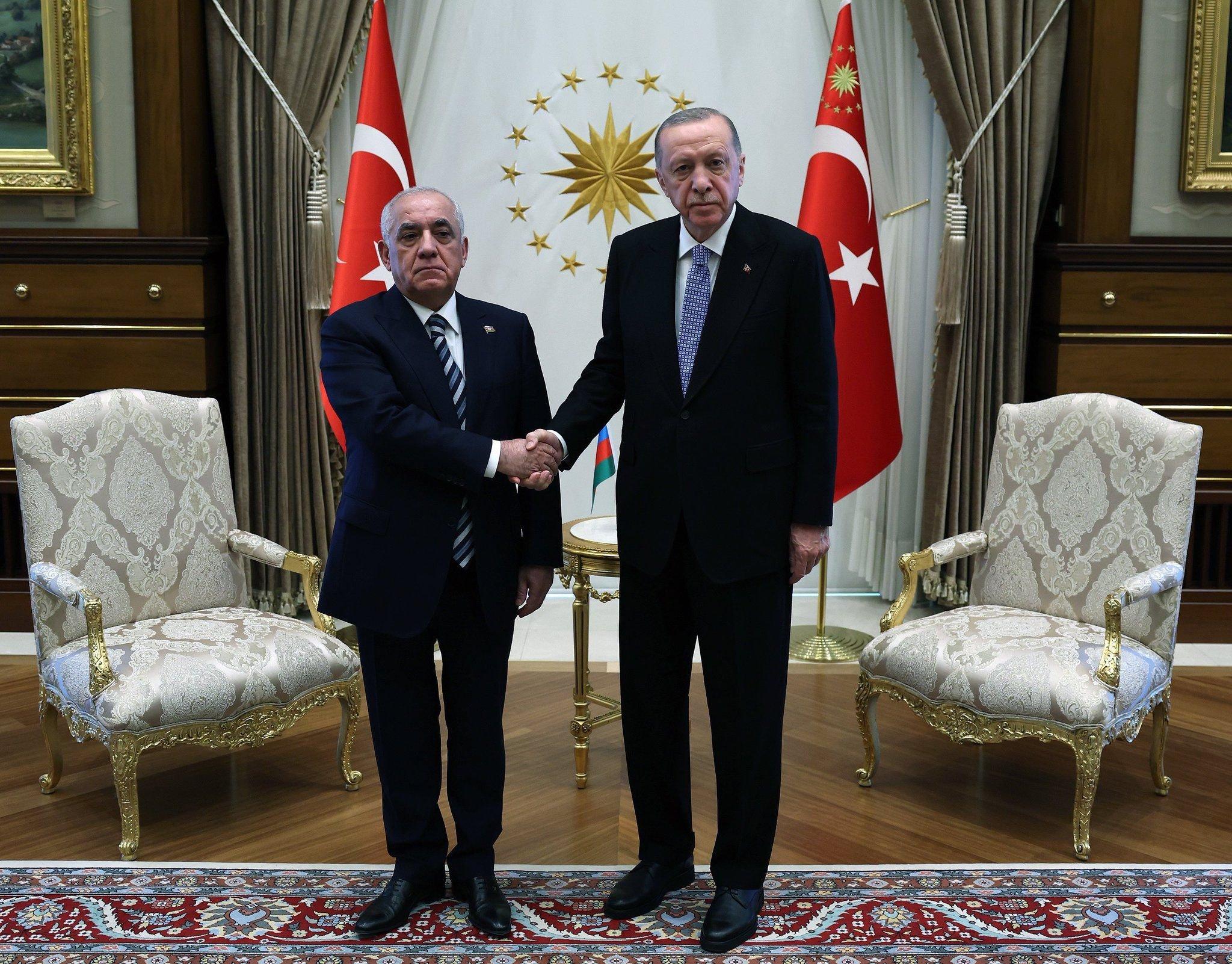Amid rising calls for Azerbaijani-Armenian peace accord
Türkiye's president urges swift action
ANALYTICS 09 May 2024 - 14:09
| Fuad Muxtar-Agbabali |
Armenia finds itself at a pivotal juncture, grappling with internal divisions and external pressures that underscore deep-seated societal challenges. Recent events reflect a broader struggle within Armenian society to distinguish between constructive change and entrenched delusions of grandeur.
The inability to discern right from wrong has historically plagued Armenia, leading to a cycle of self-inflicted misfortunes. As the country faces pivotal decisions, including the need to realign with global norms and regional dynamics, the stakes are high.
For four years, Armenia has had a crucial opportunity to re-evaluate its trajectory, shedding the burden of corruption and embracing a path towards genuine progress. However, this introspection seems elusive, risking the very fabric of the Armenian state.
Prime Minister Nikol Pashinyan, keenly aware of these challenges, advocates for a pragmatic approach, urging his compatriots to prioritize the tangible development of Armenia over abstract claims of a mythical past. Yet, his efforts are facing formidable obstacles.
The aftermath of the peace agreement continues to reverberate, revealing stark realities about Armenia's place in the international and regional platforms. Fundamental constitutional reforms are imperative, requiring Armenia to align its legal framework with global standards.

The fundamental question persists: Does Armenia genuinely seek peaceful coexistence with its neighbors, or does it cling to outdated grievances and animosities? The answer hinges on collective action to embrace change.
Armenia's failure to unite in addressing its core challenges portends further turmoil and regional instability. The absence of broad support for radical elements signifies a divided society grappling with its identity.
The upcoming events, notably the protests against the delimitation and demarcation, underscore deeper fissures within Armenian society. Radical factions exploit nationalist sentiments, vilifying Pashinyan and distorting the discourse to serve their agenda.
The juxtaposition of historical symbolism, such as Victory Day on May 9, against present-day extremism highlights Armenia's struggle to reconcile its past with a rapidly evolving geopolitical landscape.
In essence, Armenia stands at a crossroads, where each development serves as a litmus test for governance and societal resilience. Observers must remain vigilant, as Armenia navigates these turbulent waters, and draw meaningful insights from the unfolding narrative. The future of Armenia and its regional relations depend on the choices made in these critical moments.

Assessing Armenia's imperative for signing a final peace agreement with Azerbaijan
Armenia stands at a critical juncture, facing mounting pressures to secure a final peace agreement with Azerbaijan. The urgency stems from shifting geopolitical dynamics and internal imperatives that demand decisive action from Yerevan.
In recent months, the South Caucasus region has entered a phase nearing resolution, marked by the ascendance of Azerbaijan's geopolitical influence. The global giants, including the USA, Russia, and Western powers, have recalibrated their strategies in response to Azerbaijan's assertive position. This shift underscores the region's transformation under Azerbaijan's geopolitical sway.
Azerbaijan's diplomatic maneuvers, notably its engagement with the Kremlin resulting in the withdrawal of Russian peacekeeping forces, exemplify Baku's growing influence. Furthermore, Azerbaijan's resolute stance against Western provocation has compelled a reassessment of Western policies vis-à-vis Azerbaijan.
Armenia, in contrast, finds itself increasingly isolated, grappling with the realization that Western support is not a panacea for its regional challenges. Prime Minister Nikol Pashinyan's government acknowledges the imperative of direct engagement with Azerbaijan to resolve longstanding disputes.
The border delimitation process, viewed by Yerevan as essential for Armenia's security, reflects a pragmatic shift. Armenia's recent return of four Azerbaijani villages highlights a tangible step towards normalization, despite internal resistance within Armenia.
Prime Minister Pashinyan's resilience in the face of internal pressures underscores Armenia's commitment to pursuing diplomatic solutions over resignation. Pashinyan's stance aligns with Armenia's broader strategic imperative to secure its future amidst evolving geopolitical tides.
Armenia's strategic calculation factors in the upcoming US elections, recognizing the potential shift in American policies post-election. The Biden administration's engagement with Armenia is viewed through the lens of electoral dynamics, amplifying Yerevan's sense of urgency to solidify relations with Azerbaijan.
The rhetoric from Armenian officials, including Parliament Speaker Alen Simonyan, underscores Yerevan's readiness to pursue a final peace agreement. The absence of significant disagreements with Azerbaijan signals Armenia's untested yet eagerness to embrace diplomatic solutions.
However, Armenia's window for decisive action narrows amid looming uncertainties, notably the potential re-election of Donald Trump. A Trump victory could marginalize the "Armenian factor" in US policies, leaving Armenia vulnerable to diplomatic isolation.
In essence, Armenia confronts a pivotal moment, wherein failure to engage decisively with Azerbaijan risks diminishing its international relevance. The imperative for Yerevan is clear: seize the opportunity to sign a final peace agreement before geopolitical conditions shift irreversibly against its interests. Failure to act decisively could consign Armenia to a future of diplomatic marginalization and insecurity in the South Caucasus.
Turkish president calls for swift Azerbaijani-Armenian peace accord
Turkish President Recep Tayyip Erdogan emphasized the urgent need for a peace agreement between Azerbaijan and Armenia during a meeting with Azerbaijani Prime Minister Ali Asadov in Ankara.

President Erdogan highlighted the importance of achieving stability in the region through a comprehensive peace accord. Expressing satisfaction with the progress in discussions between Baku and Yerevan, Erdogan anticipated positive outcomes from the upcoming meeting of the foreign ministers of Azerbaijan and Armenia, Jeyhun Bayramov and Ararat Mirzoyan, scheduled to take place in Almaty on May 10.
Caliber.Az
|
1
|
700 tunnel shafts found in Rafah, 50 cross into Egypt Israel informs South Africa at UN top court
17 May 2024 - 15:56
|
|
2
|
Uncertainty over Russian border guard withdrawal from Armenia Amid conflicting statements
18 May 2024 - 14:47
|
|
3
|
New Caledonia crisis mirrors Macron's hypocrisy on Azerbaijan France faces its own crisis
17 May 2024 - 17:20
|
|
4
|
Giant meteor seen lighting up skies of Portugal
19 May 2024 - 13:11
|
|
5
|
Iranian president's helicopter makes hard landing on border with Azerbaijan
19 May 2024 - 17:25
|
Speaker: Georgian Parliament to override president's veto on "foreign agents" law
20 May 2024 - 13:45
Israeli forces eliminate top-ranking Hamas police officers
20 May 2024 - 13:33
Strike planned by Paris airports staff over Olympic bonuses
20 May 2024 - 13:20
Russia's Slavyansk oil refinery damaged after weekend drone attack
20 May 2024 - 13:08
Iranian president and his delegation die in helicopter crash
Funeral date unveiled / UPDATED20 May 2024 - 12:57
Pakistan declares national mourning as South Asian leaders condole death of Iran's president
20 May 2024 - 12:56
How France exploits Europe's periphery for profit
Economic colonialism20 May 2024 - 12:49
Iranian president's death to challenge supreme leader succession - ISW
20 May 2024 - 12:44
Azerbaijan, Armenia finalising delimitation process near Guney village
PHOTO20 May 2024 - 12:32
US could sanction Georgia politicians to "defend democracy"
20 May 2024 - 12:20
G7 warms to plan for Trump-proofing Ukraine aid
20 May 2024 - 12:07
Minister: Azerbaijan considers Tajikistan's participation at COP29 important
20 May 2024 - 11:54
Armenian secuity chief to visit Qatar
20 May 2024 - 11:42
Hezbollah seeks long-term conflict with Israel
New strategy20 May 2024 - 11:30
Azerbaijani FM condoles with Iran over deadly helicopter crash
20 May 2024 - 11:25
Taiwan's new president takes office amid rising constraint with China
20 May 2024 - 11:18
Netanyahu said to reject negotiators’ bid to formulate new hostage deal proposal
20 May 2024 - 11:06
President Aliyev offers condolences to Iran's Supreme Leader
20 May 2024 - 10:57
Dominican Republic's Abinader sails to second term, pledges unity
20 May 2024 - 10:54
Azerbaijan extends condolences to Iran over tragic helicopter crash
20 May 2024 - 10:50
China bans some US firms from import, export activities
20 May 2024 - 10:42
Iran's Cabinet expresses condolences over death of President Raisi in chopper crash
20 May 2024 - 10:30
Iran's first VP to take over as acting president until election
20 May 2024 - 10:18
New Caledonia: Macron calls new security meeting as deadly unrest grinds on
20 May 2024 - 10:06
Minister: Slovak PM assassination attempt suspect may not be "lone wolf"
20 May 2024 - 09:54
Media: Israel denies involvement in Raisi's helicopter crash
20 May 2024 - 09:42
Biden pushing for two-state solution for Israel, Palestine
20 May 2024 - 09:31
The significance of Azerbaijani-Iran relations through hydropower collaboration
A new look at all-out ties20 May 2024 - 09:16
Finland may open its border with Russia after relevant law is passed — PM
20 May 2024 - 09:13
The China-Pakistan axis and Indian Ocean geopolitics
Article by Geopolitical Monitor20 May 2024 - 09:00
The Baykar effect in Turkish military praxis and statecraft
Analysis by Anadolu Agency20 May 2024 - 08:04
Assad officials face landmark Paris trial over killing of student and father
20 May 2024 - 06:00
What von der Leyen’s campaign tour says about her priorities
Review by Euractiv20 May 2024 - 03:59
Political violence is on the rise in EU, driven by extremism and disillusionment
Analysts talk to Euronews20 May 2024 - 02:01
How are museums still justifying keeping stolen artifacts?
Bloomberg reveals20 May 2024 - 00:03
Techcraft on display in Ukraine
Analysis by War on the Rocks19 May 2024 - 22:00
Chinese state-backed company to launch space tourism flights by 2028
19 May 2024 - 20:01
Ukraine destroys another Russian ship
19 May 2024 - 18:01
Slovak PM Fico no longer in immediate danger but condition serious, deputy says
19 May 2024 - 17:40
Iranian president's helicopter makes hard landing on border with Azerbaijan
19 May 2024 - 17:25
